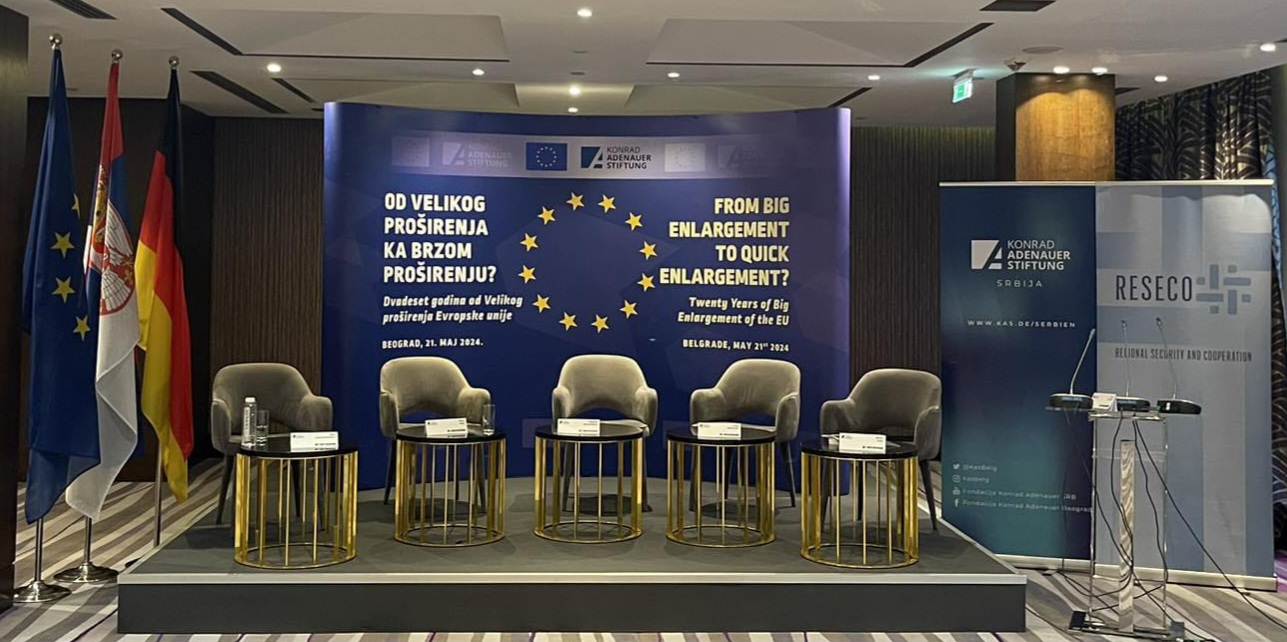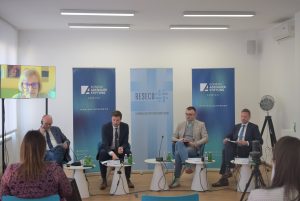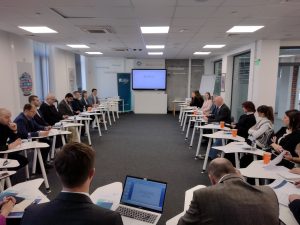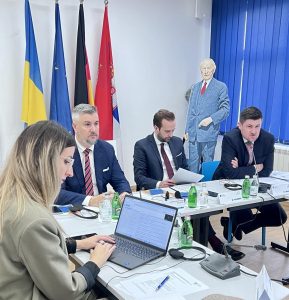On May 21, the conference “From Big Enlargement to Quick Enlargement – Twenty Years Since the Big Bang Enlargement of the European Union” took place in Belgrade. Organized by the Konrad Adenauer Foundation and RESECO, the event brought together a diverse group of experts, public figures, representatives from the international community, and young people.
The conference was opened by Dr. Stefan Surlić, Executive Director of RESECO, and Jakov Devčić, Director of the Konrad Adenauer Foundation in Serbia and Montenegro. They highlighted the significance of the “Big Bang” moment on May 1, 2004, when ten new countries joined the European Union. They emphasized that the experiences of these countries are invaluable for the Western Balkan nations, which are currently awaiting EU membership, and pointed out the various factors that influence their accession process.
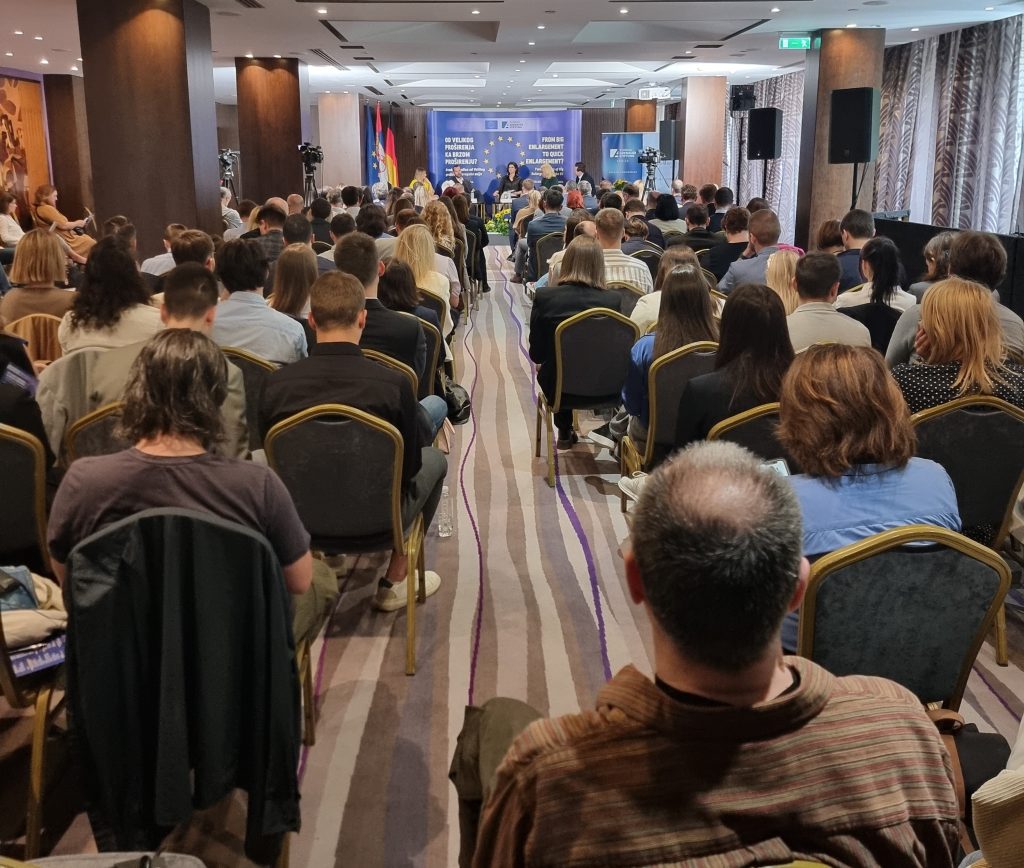
Geopolitical Enlargement 2004: Experiences and Visions
The first panel included Dr. Tanja Miščević, Serbia’s Minister for European Integration, Plamena Halačeva, Deputy Head of the EU Delegation in Serbia, Peter Grk, Secretary-General of the Bled Strategic Forum, and Maia Mazurkiewicz from the Future Force Foundation in Poland. Moderated by Marko Ivas, the panelists discussed their insights and challenges regarding European integration. They concurred that while Serbia is on the right path, it is crucial to accelerate reforms and enhance communication with citizens to foster a consensus on the importance of EU membership. Minister Miščević highlighted that “the EU doesn’t actually like to expand and does so only under geopolitical pressure. The big enlargement in 2004 was a result of major geopolitical changes, similar to the dynamics we see today.”
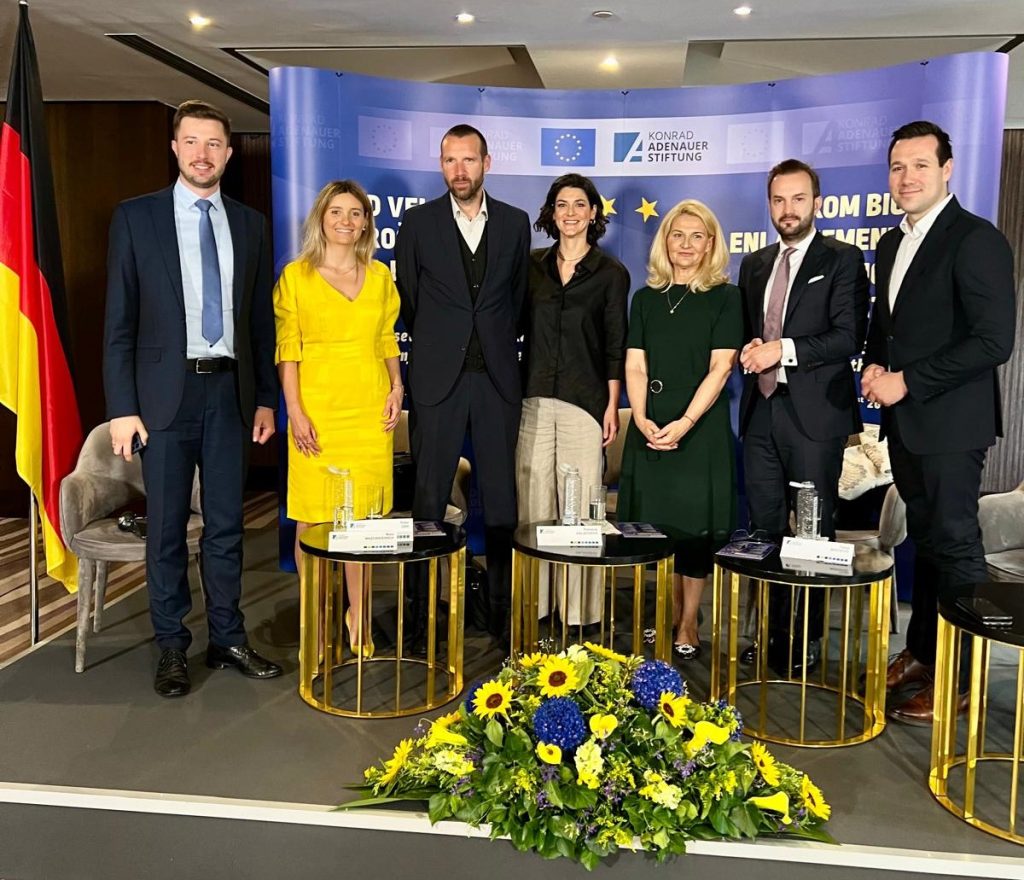
Envisioning the EU’s Future: Youth Perspectives
The second panel focused on the expectations of young people regarding the future of the EU. Panelists Katarina Bogićević, Donika Zogu, and Zoran Dabetić, moderated by Andrijana Lazarević, discussed young people’s views on European integration. They highlighted the prevalence of Euroscepticism among the youth and emphasized that better communication is key to changing this perception. To reconstruct the existing narrative, it is essential to make the EU, often seen as an impersonal entity, more relatable and understandable to citizens, fostering new perspectives and positive curiosity towards the EU.
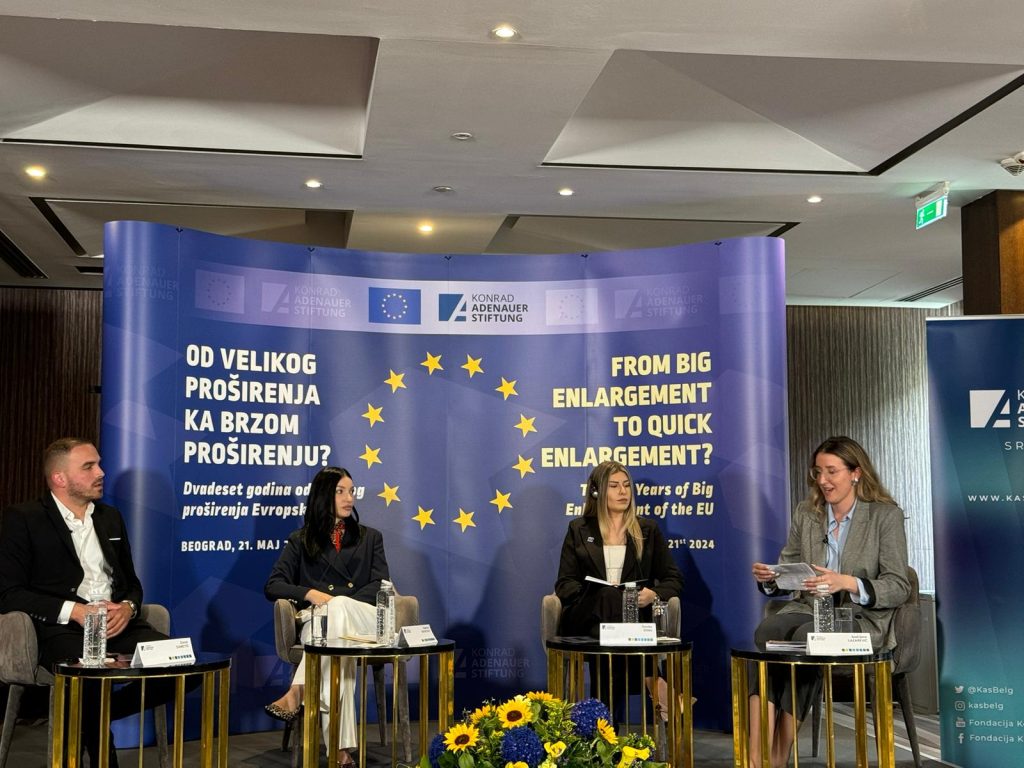
Conversation with the Prime Minister: Should We Stay or Should We Go?
In the third panel, Serbian Prime Minister Miloš Vučević, in a conversation with Marko Subotić, reaffirmed that EU membership remains a strategic goal for Serbia. He stressed the importance of making decisive political decisions to speed up the European integration process. Vučević highlighted the benefits Serbia has already received from the EU and stated that the European story is incomplete without the accession of the Western Balkan countries.
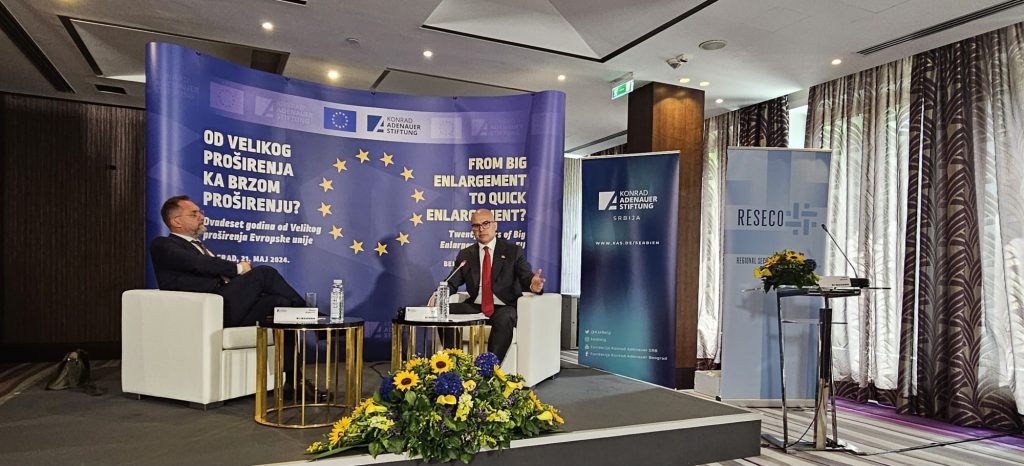
The conference concluded that addressing the challenges on the path to EU integration requires proactive engagement from all relevant stakeholders. This includes clear positioning regarding the European path and eliminating contradictory narratives that confuse the public and obscure the broader picture of the integration process.

